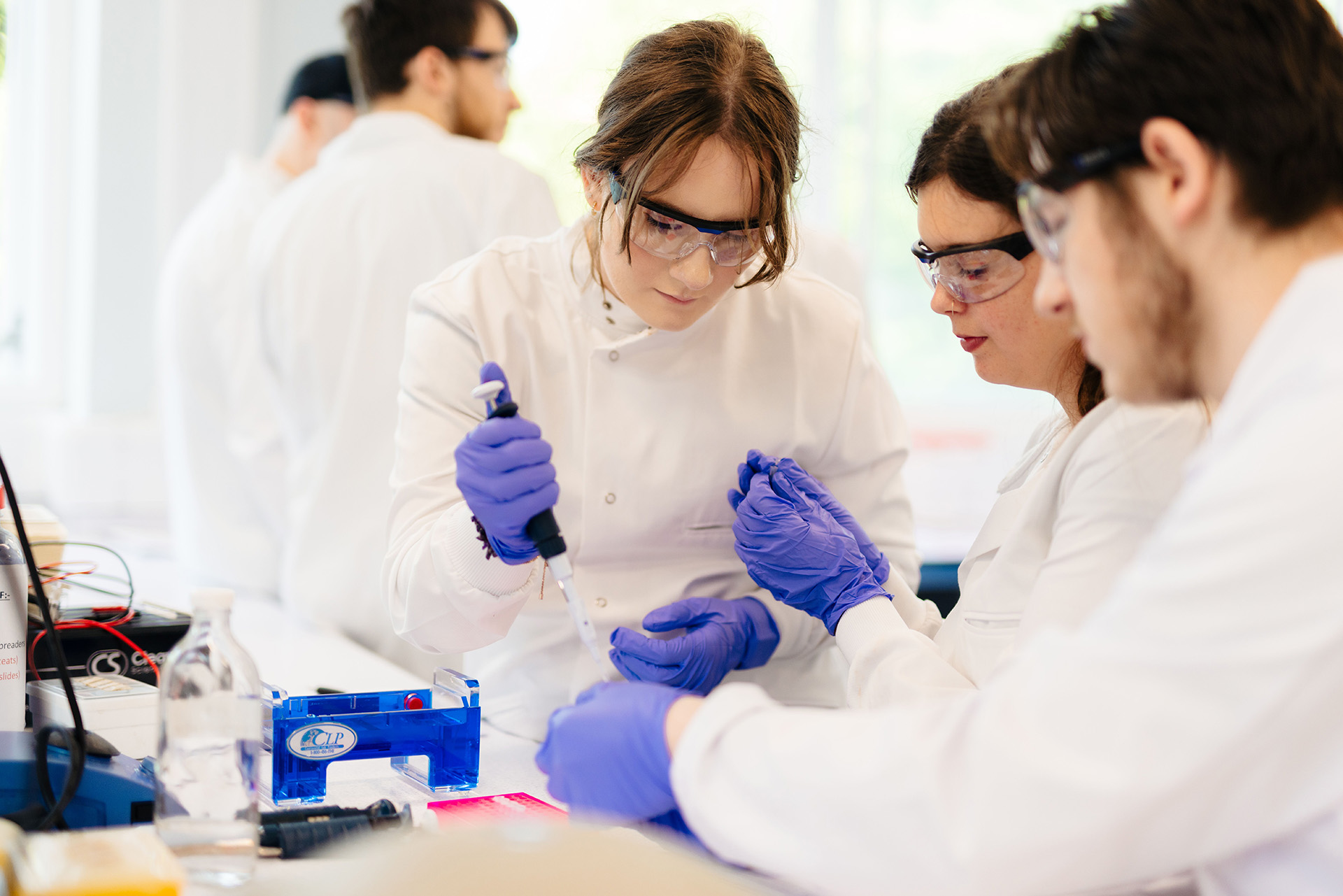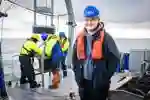
Study Biological and Marine Science at Hull
Your job will be vital: studying biological systems to provide solutions to global challenges such as biodiversity loss, climate change, food security and global health crises. At Hull, you learn from the best: a close-knit team of world-leading researchers and award-winning academics.
Our students tackle real problems, find real solutions and start making a real difference
Biological and Marine Sciences at Hull give you the skills to deal with global challenges, from genetic engineering through to protecting our precious marine resources.
Whether you want to understand the human microbiome, get practical conservation experience or survey coral reefs, you'll be working with researchers who are helping to protect and enhance the world we live in.
When you choose Hull, you’re at the centre of one of the UK’s most important aquatic habitats. The North Sea, internationally recognised research facilities – including The Deep – and the rest of the Yorkshire Nature Triangle are on your doorstep.
Fieldwork opportunities here are exceptional – both at home and overseas. Our students get the chance to work in far-flung places like Brazil and Egypt. On top of this, we offer part-funded PADI advanced scuba dive training as part of your degree.1
Choose the right course for you
Filters
Real-world skills. Real-world impact.
With enviable field, analytic and lab skills under your belt, you can pursue a wide range of careers.
Our team gives you expert advice and training. We’ll help you explore your options and progress into a career you’ll love. You’ll learn how to apply for jobs and prepare for interviews and meet employers at on-campus events.
Take a look at what our students do after they graduate.

Hanna Lightley
We caught up with Hannah Lightley, a MSc Marine Biology graduate who now works at Hebridean Whale and Dolphin Trust.

Egypt, Mallorca, Brazil, Yorkshire...
Field trips are an essential component of our Biological and Marine Sciences degrees at Hull.
Our location inside the Yorkshire Nature Triangle gives you easy access to some of the UK’s most important habitats, such as the shores of the Humber and the stunning Yorkshire coast.
Throughout your degree there will be lots of opportunities to take part in fieldwork and field-to-lab activities. Depending on which modules you choose, you may find yourself learning to dive, engaging in practical conservation, surveying rocky shores or carrying out Phase 1 habitat surveys.
Why study Biological and Marine Science at Hull?
Gain real world practical skills in the lab and in the field, with access to industry standard facilities. Use our super-computing power for genomic analysis, our 33,000 litres of tropical aquaria, and our flexible teaching labs to enhance your studies.

Do it your way
In your first year, you start with a broad and varied programme. Then your second year teaches you a thorough grounding in essential biology studies. And finally, your third year gives you the chance to specialise in areas that could become your future career.
You’ll control the emphasis of your studies with opportunities to focus on topics that interest you, allowing you to build a course to suit your passions and ambitions.
With our support through specialist modules, you get to study the exact degree you want.

Diverse and globally-impactful research
Our lecturers are a small, friendly, supportive group, including three winners of the Royal Society of Biology’s 'Higher Education Bioscience Teacher of the Year Award'.
They incorporate their excellent and impactful research into their teaching, making for a wide choice of final-year projects with specialisms to suit the needs of your studies.
Our teams have close links with industry, statutory nature conservation organisations as well as the Hull Marine Laboratory, which provides high quality commercial services within the sector.

Our doors are always open to unclosed minds
So whoever you are, wherever you're from and wherever you want to go, we'd love to meet you.
Book your visit now, and discover how one day at Hull can change every day.
Stay in touch
Got questions? We've got answers.
Module options include PADI-certified Open Water & Advanced Open Water Diver training (extra fee may be payable), subsidised for students in the School of Environmental Science (including Environmental Science and Marine Biology).
Our friendly, supportive lecturers include winners of the Royal Society of Biology’s 'Higher Education Bioscience Teacher of the Year Award'.
Most overseas trips run in the summer between the second and third year. There is an extra charge but the trips are subsidised. Destinations listed are currently included in our list of field trip opportunities but may be subject to change.
Biology is ranked Joint 3rd in the UK for Value Added. Guardian University Rankings 2026.